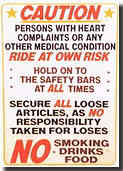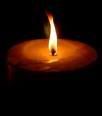Monday, February 09, 2009
A Hero
Main Entry: he·ro Function: noun Etymology: Latin heros, from Greek he-ro-s Date: 14th century. 1 a: a mythological or legendary figure often of divine descent endowed with great strength or ability b: an illustrious warrior c: a man admired for his achievements and noble qualities d: one that shows great courage. 2 a: the principal male character in a literary or dramatic work b: the central figure in an event, period, or movement. 3 an object of extreme admiration and devotion : idol.
Popular culture exalts as well as degrades, & often degrades through the exalting off what is mundane or mediocre. It degrades language (listen to politicians). The word hero has suffered in popular usage. Cops, firefighters, members of the armed forces, become heroes by entering occupations that may require heroic acts. Meaning no insult to them, what they do is admirable, not yet heroic. Modest charitable acts are called heroic. Victims are heroic, as if survival itself always requires heroic actions. Teachers are heroes. Athletes are heroes. These are kindnesses & courtesies, we don't make too much of them. False heroes fall when their heroic acts are exposed as false. A true heroic act does not require a human of flawless or even praiseworthy character. Some of the greatest heroes of art & real life are tragically flawed, even criminal prior or subsequent to their acts of heroism. This does not change the act, although it may change our perception of it. Some heroes are destroyed by the rewards of their heroism, because the act rarely changes the essential character of the one who performs it. Heroism is not the same as redemption, although it may be misunderstood as redemptive. Heroism can provide redemptive opportunity - usually self-sacrificial.
If you paid attention in high school or college lit classes, you probably had some lively discussions about what defines a hero. Good lit teachers spend some time with this matter, not only for comprehending the play or book being studied & applying that comprehension to other works of art, but to help students recognize, & when necessary resist, manipulative language. Hero is much manipulated word. After all, one person's hero might be another person's enemy - maybe even a terrorist.
Occasionally, we get an obvious hero of a type (there are many types in literature: Flight 1549 hero pilot Chesley "Sully" Sullenberger discusses ordeal reads one headline today. We have no quibbles. His virtues are skill & experience, plus the qualities of character to apply them in a life or death situation, which resulted in a successfully heroic act. In fact, had that plane crashed in the river & killed everyone on board, he still would have been a hero by choosing Hudson River as his landing place. His flight crew are also heroes, though subordinate to him. The passengers are not heroes, would not have been heroes even if they all died. They were along for the ride. Heroes require witnesses, otherwise we would not know their heroism. Sullenberger hit the jackpot of witnesses.
I was watching an old Star Trek episode on Saturday in which a young ensign believed he was trying to prevent Capt. Kirk from sacrificing himself to destroy an alien monster. We knew Kirk better than the ensign did. Kirk is always prepared to die on behalf of his crew, even sacrifice his crew on behalf of a world, but his goal is always to live. We know that if you're in Kirk's crew, your best chance at survival is by staying close to him & doing what he orders. Doesn't always work, but your odds are improved. Sully's heroism was similar to the typical Kirk heroism; both were captains of flying machines, both faced the destruction of themselves, their crew & passengers. Both resolved to honor the greater good (for Sullenberger, not risking a crash in a populated area) but also to give themselves a chance at survival. The best part is that Sullenberger is for real. He's handled his fame well; by not denying or spurning the fame, & by not projecting a false modesty, & by enjoying the attention without seeming to revel in it. Presented with the horrifying situation hypothetically, he might have chosen himself as the pilot most qualified to cope with it.
Sullenberger can now fade gracefully into the American fabric - I hope he's not the type to do "Dancing With the Stars." He may not even be an interesting autobiography. He will reap quieter rewards. But he will never be forgotten around New York City, where he'll never again have to pay for his own dinner.
Popular culture exalts as well as degrades, & often degrades through the exalting off what is mundane or mediocre. It degrades language (listen to politicians). The word hero has suffered in popular usage. Cops, firefighters, members of the armed forces, become heroes by entering occupations that may require heroic acts. Meaning no insult to them, what they do is admirable, not yet heroic. Modest charitable acts are called heroic. Victims are heroic, as if survival itself always requires heroic actions. Teachers are heroes. Athletes are heroes. These are kindnesses & courtesies, we don't make too much of them. False heroes fall when their heroic acts are exposed as false. A true heroic act does not require a human of flawless or even praiseworthy character. Some of the greatest heroes of art & real life are tragically flawed, even criminal prior or subsequent to their acts of heroism. This does not change the act, although it may change our perception of it. Some heroes are destroyed by the rewards of their heroism, because the act rarely changes the essential character of the one who performs it. Heroism is not the same as redemption, although it may be misunderstood as redemptive. Heroism can provide redemptive opportunity - usually self-sacrificial.
If you paid attention in high school or college lit classes, you probably had some lively discussions about what defines a hero. Good lit teachers spend some time with this matter, not only for comprehending the play or book being studied & applying that comprehension to other works of art, but to help students recognize, & when necessary resist, manipulative language. Hero is much manipulated word. After all, one person's hero might be another person's enemy - maybe even a terrorist.
Occasionally, we get an obvious hero of a type (there are many types in literature: Flight 1549 hero pilot Chesley "Sully" Sullenberger discusses ordeal reads one headline today. We have no quibbles. His virtues are skill & experience, plus the qualities of character to apply them in a life or death situation, which resulted in a successfully heroic act. In fact, had that plane crashed in the river & killed everyone on board, he still would have been a hero by choosing Hudson River as his landing place. His flight crew are also heroes, though subordinate to him. The passengers are not heroes, would not have been heroes even if they all died. They were along for the ride. Heroes require witnesses, otherwise we would not know their heroism. Sullenberger hit the jackpot of witnesses.
I was watching an old Star Trek episode on Saturday in which a young ensign believed he was trying to prevent Capt. Kirk from sacrificing himself to destroy an alien monster. We knew Kirk better than the ensign did. Kirk is always prepared to die on behalf of his crew, even sacrifice his crew on behalf of a world, but his goal is always to live. We know that if you're in Kirk's crew, your best chance at survival is by staying close to him & doing what he orders. Doesn't always work, but your odds are improved. Sully's heroism was similar to the typical Kirk heroism; both were captains of flying machines, both faced the destruction of themselves, their crew & passengers. Both resolved to honor the greater good (for Sullenberger, not risking a crash in a populated area) but also to give themselves a chance at survival. The best part is that Sullenberger is for real. He's handled his fame well; by not denying or spurning the fame, & by not projecting a false modesty, & by enjoying the attention without seeming to revel in it. Presented with the horrifying situation hypothetically, he might have chosen himself as the pilot most qualified to cope with it.
Sullenberger can now fade gracefully into the American fabric - I hope he's not the type to do "Dancing With the Stars." He may not even be an interesting autobiography. He will reap quieter rewards. But he will never be forgotten around New York City, where he'll never again have to pay for his own dinner.
Labels: culture, in the news
Comments:
<< Home
"If a nation expects to be ignorant and free, in a state of civilization, it expects what never was and never will be." Thomas Jefferson
Sully does seem a bit laid back, he lives in Northern CA. I wanted Letterman to ask him what music he liked.
Post a Comment
<< Home















